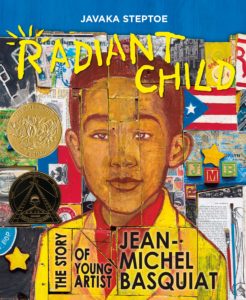 Long ago, I read Ursula K. LeGuin’s The Left Hand of Darkness, in which the protagonist is an envoy for a planetary alliance who is visiting a world with a dramatically different culture than his own. In the years since that first reading, I have branched out from my fantasy and sci-fi roots to general fiction, and finally to nonfiction (with periodic side trips to the aforementioned.) Yet I must disclose that this book has secured an unconditional spot on my top ten life list. I am remorselessly biased, but not without reason: this work tackles essential themes of identity, acceptance and empathy; in this reader’s opinion it is timeless. Over the years I have revisited the story and I recommend it without reservation, urging those who normally wouldn’t consider reading sci-fi to rise to the occasion. LeGuin suggests in her introduction that science fiction does not predict, it describes, and that all writers use lies to tell the truth. So perhaps we might see a bit of ourselves in the story that she weaves about the people of imaginary Gethen, or in the stranger who finds himself in their midst.
Long ago, I read Ursula K. LeGuin’s The Left Hand of Darkness, in which the protagonist is an envoy for a planetary alliance who is visiting a world with a dramatically different culture than his own. In the years since that first reading, I have branched out from my fantasy and sci-fi roots to general fiction, and finally to nonfiction (with periodic side trips to the aforementioned.) Yet I must disclose that this book has secured an unconditional spot on my top ten life list. I am remorselessly biased, but not without reason: this work tackles essential themes of identity, acceptance and empathy; in this reader’s opinion it is timeless. Over the years I have revisited the story and I recommend it without reservation, urging those who normally wouldn’t consider reading sci-fi to rise to the occasion. LeGuin suggests in her introduction that science fiction does not predict, it describes, and that all writers use lies to tell the truth. So perhaps we might see a bit of ourselves in the story that she weaves about the people of imaginary Gethen, or in the stranger who finds himself in their midst.
Protagonist Genly Ai is on a mission to a planet whose inhabitants are androgynous. Gethenians are neither male nor female, nor are they neither or both. They are all “potentials”; due to a unique biological trait, they experience sexual cycles during which they develop as male or female for the span of that cycle. So an individual might end up being the mother of one child and the father of another. The result is that some of the foibles of our own planet, such as fixed gender-based assumptions, are impossible to have on Gethen. Interactions require a sensitivity and willingness to accept new information about a person you might have known in a different context the last time you met, and to maintain that ability to be flexible for a lifetime. In a sense, LeGuin’s work is a nod to gender fluidity that was ahead of its time. Although hailed as a feminist work, one could argue that the term feminist is an inaccurate descriptor of literature that shuts down gender-based norms as a whole. In June when we at the library were receiving mixed (yet largely positive) reactions to Pride Month programming, this story kicked its way to the surface of my brain once again. While the book is not about LBGTQ concerns, it is a study of acceptance and empathy for others, which may not be universal solvents of social barriers, but which should always be our first consideration.
And what of our protagonist, Genly Ai? LeGuin puts him through his paces by entangling him in a complex political intrigue. He has undertaken the mission alone, as is the practice of an envoy when approaching a new planet. He initially attempts contact in Karhide, one of two major nations on Gethen. In the first chapter we learn that in spite of nearly two years on the planet, he is still largely unable to understand the culture and behavior of the people there, who employ a subtle and complicated etiquette due to their ever-changing interactions. In all fairness, the people of Gethen have an equally hard time figuring him out; to them he is too definitive, both in physiology and mannerisms. He finally manages to get an audience with the king with help from the Prime Minister, Lord Estraven, but his offer to join the collective of planets is rejected. Concurrently, Estraven is accused of treason and exiled. The two next meet in the nation of Orgoreyn, which ultimately rejects the proposal as well. This time Genly Ai is imprisoned in a labor camp, until Estraven manages to break him out. Then the pair embark on a dangerous 80-day journey across the ice sheet to return to Karhide, during which time they must learn to accept and rely on one another in order to survive. This premise is carried out well, but I will leave the details of how the story plays out to be discovered by those who decide to read it. Minuteman offers it in print or CD audio as well as digitally (ebook or audiobook); I’m enjoying the CD version performed by masterful narrator George Guidall, although I will likely also check out the digital audio version, which features a BBC full-cast dramatization.
LeGuin, who died in 2018 (one year short of the 50th anniversary of the publication of this work) was articulate and outspoken on a variety of issues ranging from feminism to the business of writing, including the importance of distinguishing between writing as a commodity to be sold by publishers versus writing as art. She spoke about the latter in her 2014 acceptance of the National Book Foundation’s Medal for Distinguished Contribution to American Letters, where she was wonderfully introduced by Neil Gaiman with a touching tribute that described how she had influenced him as a writer and as a human being. LeGuin wrote both fiction and nonfiction works, including those on the craft of writing and collections of essays on various topics. No Time to Spare is a best-of compilation of the blog postings that she began writing in her eighties, in which she explored topics large and small, from growing older to the “lit biz,” including a jaw-dropping turn at satirizing the overuse of shock words that should prove beyond a shadow of a doubt that, in direct contradiction of the old saw, there is such a thing as too much (of something.) In the introduction, she notes that, as an introvert who liked to let her work speak for itself, she never saw herself performing the role of blogger until she was inspired to take up the task by writer Jose Saramago, whose own blogs were translated into English and published as The Notebook, and which she described as revelatory. Both were octogenarians when they began blogging. Perhaps there’s a final lesson there, about the flexibility of identity.
Kirstie David is the Literacy/Outreach Librarian at the Morrill Memorial Library in Norwood, MA. Look for her article in the August 19, 2021 issue of the Transcript and Bulletin.



